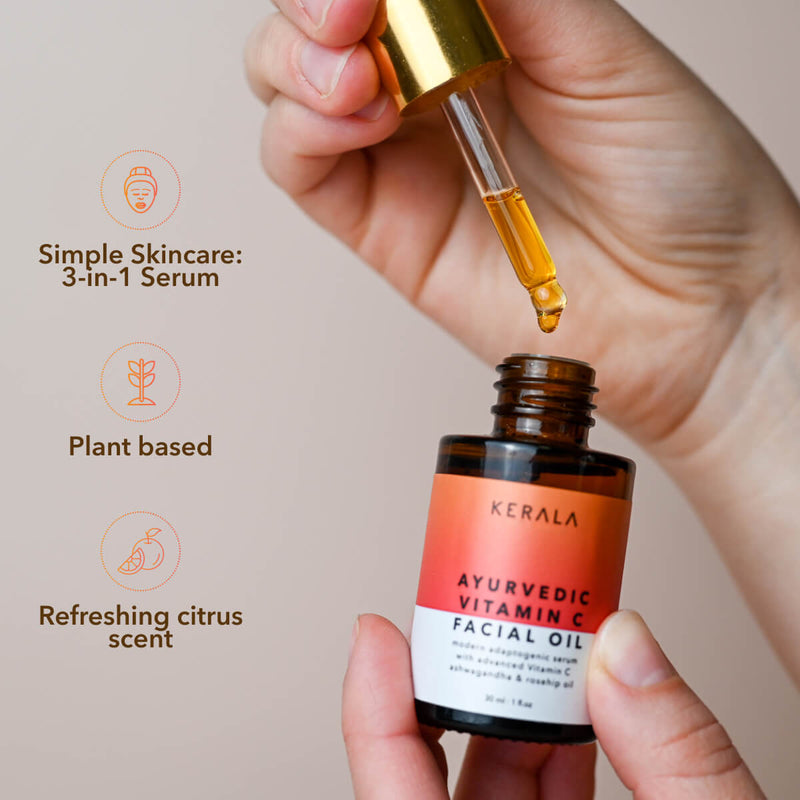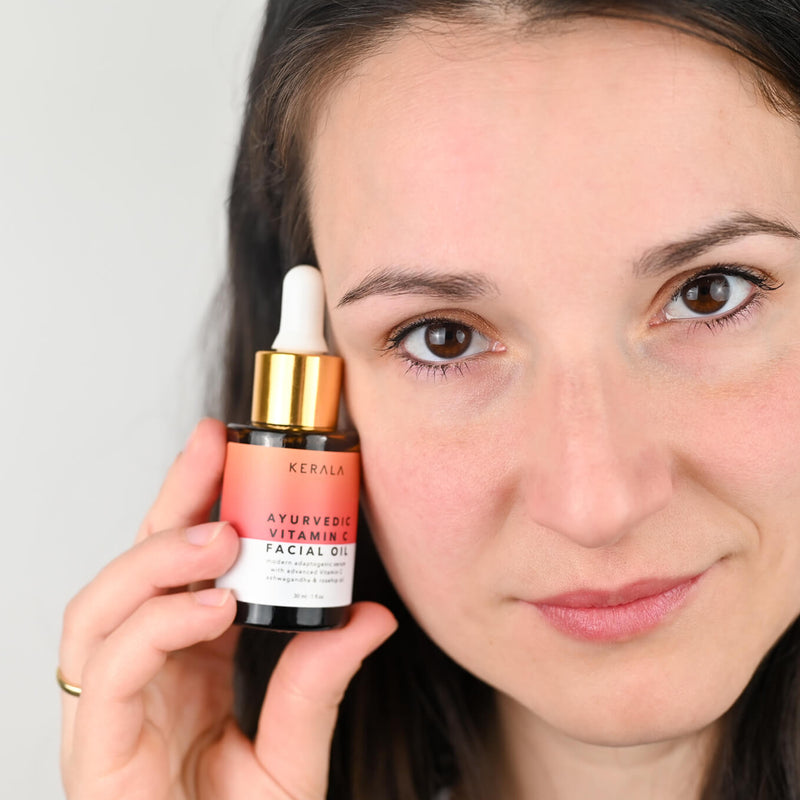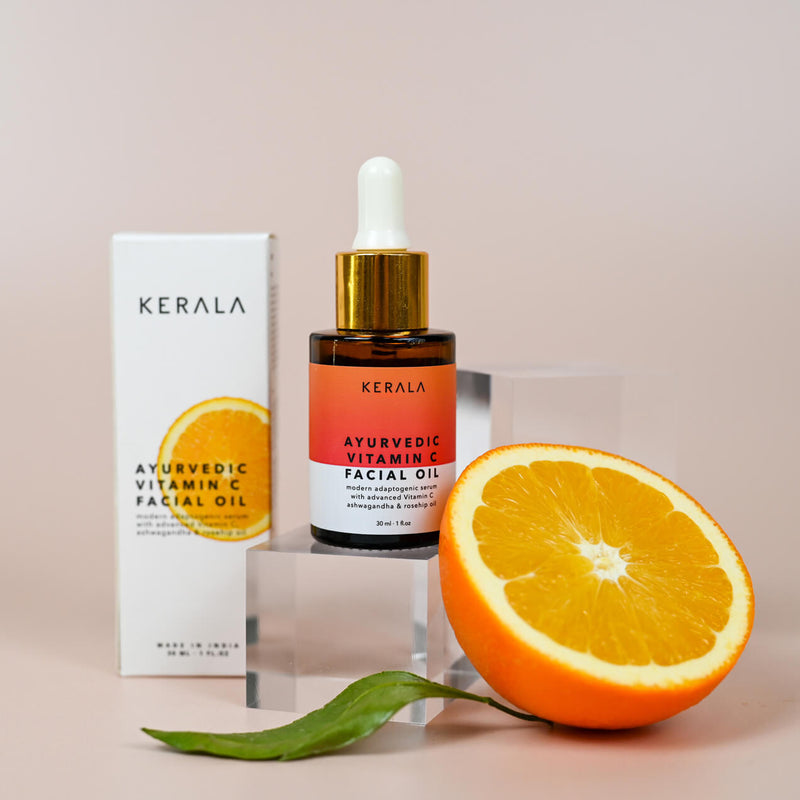The ancient Ayurvedic texts emphasize the significance of daily practices, known as Dinacharya, to maintain optimal health. While these practices are extensive, incorporating them all into daily life might be impractical. Here are five key Ayurvedic practices that support overall well-being and can be completed in under 15 minutes each day:
1. Nasya for brain health
- Time: 1 minute or less
- How to: Lie down, tilt your head back, and instill two drops of Anu tailam (Ayurvedic oil for sinus relief) in each nostril.
- Benefits: Nasya goes beyond alleviating allergies and sinus congestion. According to ancient Ayurvedic texts, the nose serves as the gateway to the brain. The practice is believed to nourish cerebrospinal fluid, crucial for brain and spinal health. This fluid has links to conditions like Alzheimer's and certain types of dementia. Additionally, Nasya promotes restful sleep, better vision, delayed graying, and lubrication of the jaw.

2. Tounge scraping to stimulate digestion
- Time: A few seconds
- How to: Use a copper tongue scraper to gently clean the tongue after brushing.
- Benefits: The tongue, as one end of the digestive tract, is often overlooked. Tongue scraping, or Jivha Nirlekhana, serves to refresh the digestive system by removing the coating on the tongue. This simple practice stimulates taste buds, ignites the digestive fire, and contributes to oral hygiene. In Ayurvedic philosophy, it's considered as essential as having a bowel movement, as both processes involve waste elimination.
3. Abhyanga massage to delay aging.
- Time: 6-7 minutes
- How to: Massage the body with warm sesame oil, starting from the head and moving down.
- Benefits: Abhyanga, the practice of oil massage, extends beyond superficial skincare. According to Ayurvedic science, it not only moisturizes the skin but also regulates the nervous system and Vata (one of the three doshas in Ayurveda). This massage is believed to delay aging, nourish deeper tissues, such as the bone marrow, tone muscles, increase strength, promote restful sleep, and bring a sense of peace.

4. Alternate Nostril Breathing to create equilibrium
- Time: 4-6 minutes
- How to: Inhale and exhale alternately through each nostril, balancing energies.
- Benefits: Rooted in Yogic tradition, alternate nostril breathing is a pranayama practice with profound effects. It involves inhaling and exhaling through the left and right nostrils, each associated with unique subtle energies. Balancing these energies is crucial for maintaining homeostasis, reducing anxiety, and bringing peace and calm. It also harmonizes both sides of the brain.

5. Walking after eating to enhance digestion
- Time: 2-3 minutes
- How to: Walk 100 steps at a gentle pace after meals.
- Benefits: Ayurvedic science provides guidance not only on what to eat but also on how to support digestion. Walking 100 to 200 steps after meals, known as Shad Pavli, facilitates the movement and settling of food in the gut. This practice stokes the agni or digestive fire, promoting enhanced digestion. Additionally, the post-meal recommendation of Vama Kuksi, lying down on the left side for 20 minutes, aids the downward movement of food into the colon.

6. Incorporating a High-Quality Oil-Based Skincare Routine with Ayurvedic Herbs:
- Time: 2 minutes
- How to: Massage a high-quality oil-based product, enriched with Ayurvedic herbs like bakuchiol, amla, and licorice, onto your face and decolletage.
- Benefits: he word for oil in Sanskrit, Sneha, means love. So, when practicing Abhyanga or applying oil on your face, you are not just covering yourself in oil, but also with love, both of which Ayurveda believes are essential to our existence. Modern research supports the effectiveness of Vitamin C and Retinol for skincare. While Retinol can have side effects like redness and dryness, Bakuchiol, an Ayurvedic miracle herb, has been found to be as effective as Retinol but without the associated side effects. This is why products like our Ayurvedic Vitamin C Face Oil, containing vitamin C, bakuchiol, and rosehip oil, can provide skincare benefits without compromising on skin health.

The takeaway
By integrating these five Ayurvedic practices into your daily routine, spending just 14 to 15 minutes a day, you can observe positive changes in various aspects of your well-being, including breathing patterns, sleep quality, skin health, mood, digestion, and overall physical and mental wellness. These practices offer a comprehensive approach to health within the constraints of our busy lives.









